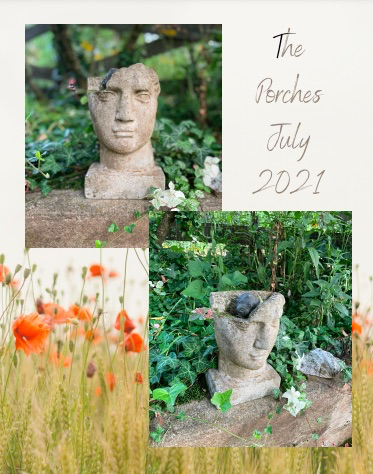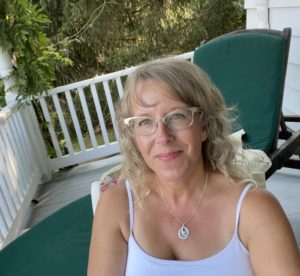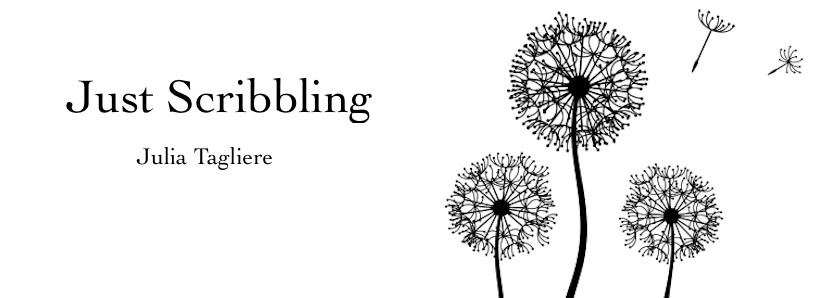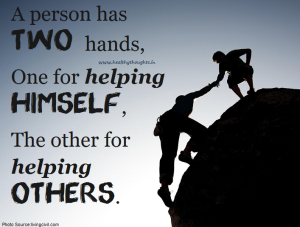
I recently had the honor to be named the 2021 Nancy Zafris Short Story Fellow, a precious gift that granted me a ten-day writing retreat at Porches to work on my current collection, Reliance. Those of you who are writers, and more specifically, those who have had the great good fortune to visit Porches, will immediately grasp the generosity of that gift. But for those of you who are not writers and perhaps have no idea what a writer actually does during a writing retreat, I hope you’ll find my summary of my recent experience by way of, to use a business term, “deliverables,” illuminating, both in terms of what I was able to accomplish as well as what a transformational creative experience my retreat was. During my 10 days, I:
Wrote an 850-word book review! (For the wrong book, but that’s beside the point.)
Finished reading the last 130 pages of Here’s the Deal by Ross Miller.
Read the entire July/August issue of Poets & Writers, 120 pages, in one fell swoop. And I mean that swoop was fell.
Submitted two older stories to journals.
Finished polishing my story “Needlework.”
Read all 304 pages of Nancy Zafris’s book The Metal Shredders, where I first got to know the character of Don Capachi.
Wrote a short poem inspired by Nancy Zafris’s book The Metal Shredders.
Wrote a brand-new 2,200 word story, “Maggie & Charlie.”
Read all 320 pages of Satan Is Real: The Ballad of the Louvin Brothers by Charlie Louvin with Benjamin Whitmer, which was not at all the book I thought it was going to be, and which also reminded me of the old adage, “You can’t judge a book by its cover,” 100% true in this case. However, having said that, if it hadn’t been for this book’s absolutely bonkers cover, I likely never would have picked it up as I did at Blue Moon Antiques & Book shop, and it is a damned fine book, one of my favorite reads in years.
Finished polishing my “Maggie & Charlie” story.
Finished reading the last 200 pages of Go Tell It on the Mountain by James Baldwin.
Wrote another brand-new 3,000-word story, “This Might Hurt A Bit.”
Started reading The Warmth of Other Suns by Isabel Wilkerson; got to around page 340 of its 647 total pages.
Took 233 pictures/videos on my phone.
Read all 177 pages of Nancy Zafris’s collection The Home Jar, which knocked my ever-lovin’ socks off. That llama farm? Holy crap! And to end it with that beautiful reunion with Don Capachi? Oh. An absolute joy to read.
Drew 3 new pictures, which is 3 more than I’ve drawn in decades.
Entered into a spreadsheet 250 names/titles & suite numbers from an image I found online of a 1900s-era Reliance Building directory, so that I can edit it and use it in funky ways in my Reliance collection.
Took the work I’ve completed on Reliance to date and began assembling it as the collection I’ve envisioned for 16 years now; wept to see it looking like a “real” book.
Completed roughly 12–15 hours total of new research, in which I learned for the first time about Henry “The Midget Bandit” Fernekes, a mind-bogglingly fascinating and oddly underappreciated crook who’s received far less attention historically than he should have, thanks to being overshadowed by Capone.
Wrote 45 pages in my journal, which is 42 journal pages more than I’ve written in the past 6 months.
Started reading two additional books, but because they were borrowed, I’m waiting now for my own copies to arrive so I can keep reading them: My Sister’s Hand in Mine: The Collected Works of Jane Bowles (with an introduction by Truman Capote) and The Habit of Being: Letters of Flannery O’Connor.
Not as concretely deliverable, per se, but of no less importance, I also: made six new friends; let two turtles cross the road to safety in front of my stopped car; enjoyed almost daily the best fried chicken I have ever eaten; sampled chocolate from Madagascar and rum from Haiti, unexpected gifts from one of my new friends; watched the sun and the moon rise; explored an antiques mall; met two dogs, one of whom liked me, the other of whom was utterly indifferent to my presence; wept and belly-laughed in turn at the astonishing stories of some of the smartest, ballsiest, funniest women I’ve ever met; witnessed how fireflies turn into stars in the tall, tall treetops; learned that I don’t care for red blend wines “with a raspberry finish”; watched two hummingbirds fight over a single feeder; explored a tiny graveyard; saw a double rainbow after a storm; spent approximately 20 hours rocking on a wide, comforting porch; got lost and found my way home again; mourned a dead lizard and welcomed meeting a live one; climbed 26 creaking wooden stairs approximately 8 times a day for 10 days; made and consumed roughly 500 ice cubes the “old-fashioned way”; listened to a donkey braying and a rooster crowing; got down on my knees and prayed in a tender, old, empty church; and felt an unseen hand clasp my ankle and hold it, ever so gently, my last night in the otherwise empty bedroom on the third floor of a very wise and very welcoming house.
So there you have it, an exhaustive (though by no means complete) list of “how I spent my writing retreat” this summer. I am utterly indebted both to “Saint Trudy,” Porches founder, and to Nancy Zafris, for thinking enough of my work to give me those 10 days, and I am excited to continue working on my collection; I hope they’ll someday find it was a worthy investment.




